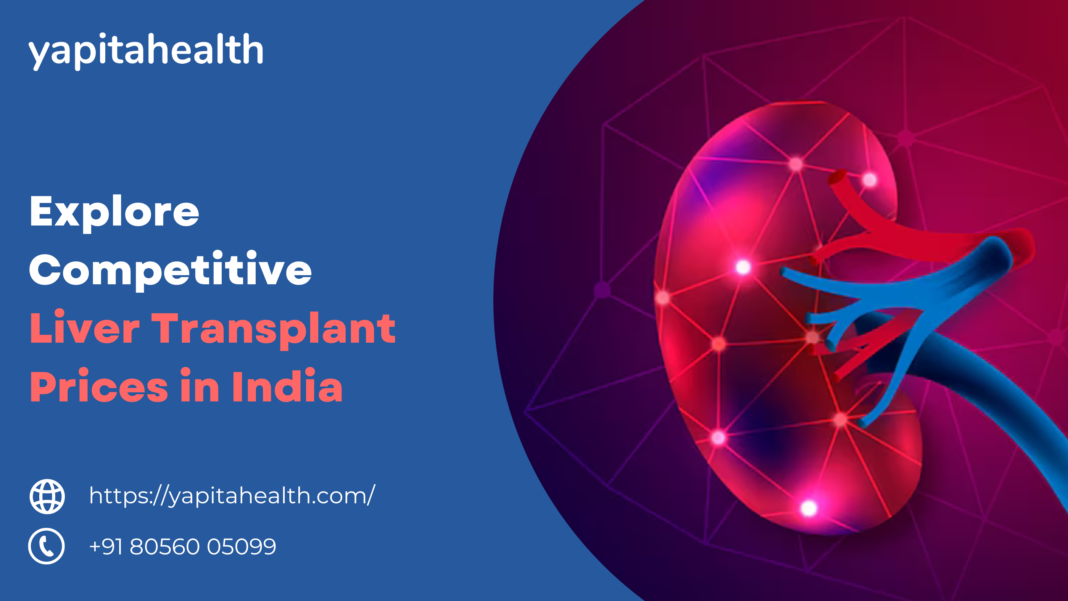If you or your loved ones are suffering from advanced-stage liver cirrhosis or liver cancer then a liver transplant is the only solution for a better and prolonged life. India’s infrastructure for medical liver transplantation is bolstered through an increasing pool of deceased and living donors which is made possible by awareness-raising initiatives and improved registration procedures. The success rates of the transplantation of livers within India are in good agreement with international standards, with many hospitals reporting success rates of over 85 per cent. The low cost and high-quality medical care draw patients not just from India but also from overseas and offer hope to patients suffering from serious liver issues. Liver transplant price in India are relatively lower than in any other city in the world.
Types of Liver Transplant
Orthotopic Liver Transplantation (OLT) – OLT is the most prevalent method for liver transplants. The donated liver is taken from a recently dead person. The liver is then transplanted into the patient’s body in place of the diseased and damaged liver. Liver transplant cost in India for this type of transplant is around Rs. 20,00,000.
Living Donor – This is the transplant type where the donor is a living human being. The donor will only donate a piece of their liver to the recipient. The donated liver will be transplanted into the patient after the diseased liver of the patient is removed from their body. The liver transplanted liver will then gradually regenerate and grow to its normal size. The same will happen to the donor’s liver inside the donor’s body. This type of transplant is usually costlier and will cost around Rs. 25,00,000.
Split Liver Transplantation – This form of transplantation involves dividing up a dead donor’s liver into two pieces that will then be given out separately; typically one portion goes to children while the larger piece goes to adults – thus increasing organ use efficiency. This type of transplant will cost around Rs. 20,00,000.
Survival Rates
Liver transplant success rates in India have seen significant improvements over the years, thanks to advancements in medical technology, surgical techniques, and postoperative care.
- One-Year Survival Rate: The one-year survival rate for liver transplants in India is generally around 80-85%. This means that 80-85% of patients who undergo a liver transplant are expected to survive for at least one-year post-surgery.
- Five-Year Survival Rate: The five-year survival rate is typically around 70-75%. This reflects the percentage of patients who are expected to live for at least five years after the transplant.
Factors That Lead to Success
The success rates of liver transplants in India are significantly high for several reasons, and these include:
Skilled Surgeons – There are many highly experienced liver transplant surgeons available in India who are highly knowledgeable and have studied in prominent institutions abroad. Their experience positively contributes towards the success of such cases.
Advanced Medical Facilities – Prominent hospitals across India are well equipped with advanced technology and infrastructure in a way that complex surgery is conducted with advanced precision and care.
Post-operative care – The liver transplant surgery can only be successful if comprehensive post-operative care, which includes close monitoring, medication management, and guidelines for lifestyle modifications is implemented. Indian hospitals provide excellent follow-up care.
Donor Availability – The success of liver transplants also depends on the availability of suitable donors. India’s development in terms of both living donor and deceased donor liver transplants and better success rates are also commendable.
Cost – Liver transplantation cost in India is provided by a number of leading hospitals and research centres at less than a fractional cost of what it is in most Western countries, making it easily affordable to a larger population.
Challenges and Considerations
While the success rate for a liver transplant in India is pretty high, there are various challenges that may occur.
Care Access – While advanced care is available in metropolitan cities, the access rate of liver transplant services remains poor in rural or relatively backward districts.
Post-transplant Complications – Just like other surgeries, the liver transplant operation holds the risk of postoperative complications, mainly in the form of infections and rejection of the new liver, among others.
Long-Term Management – Lifelong monitoring of the patients is important, and medication for the prevention of organ rejection and management of any other health issues occurring after the transplant remains critical.
Yapita Health provides you with a seamless experience from getting connected to a doctor to taking care of all your pre-operative and post-operative needs. We connect you to the vast range of hospitals providing a liver transplant. Some of these hospitals are the leading hospitals in India like Apollo, Fortis, Medanta, Global, and Wockhardt. You don’t need to worry about your travel to India as we will assist you with your visa, stay, and travel. India is a good option for a liver transplant as a liver surgery cost in India is affordable compared to many other countries.


